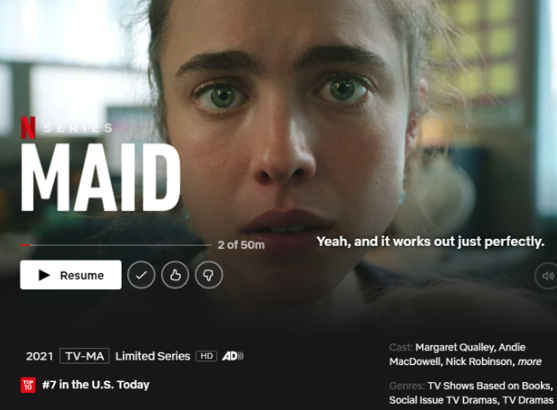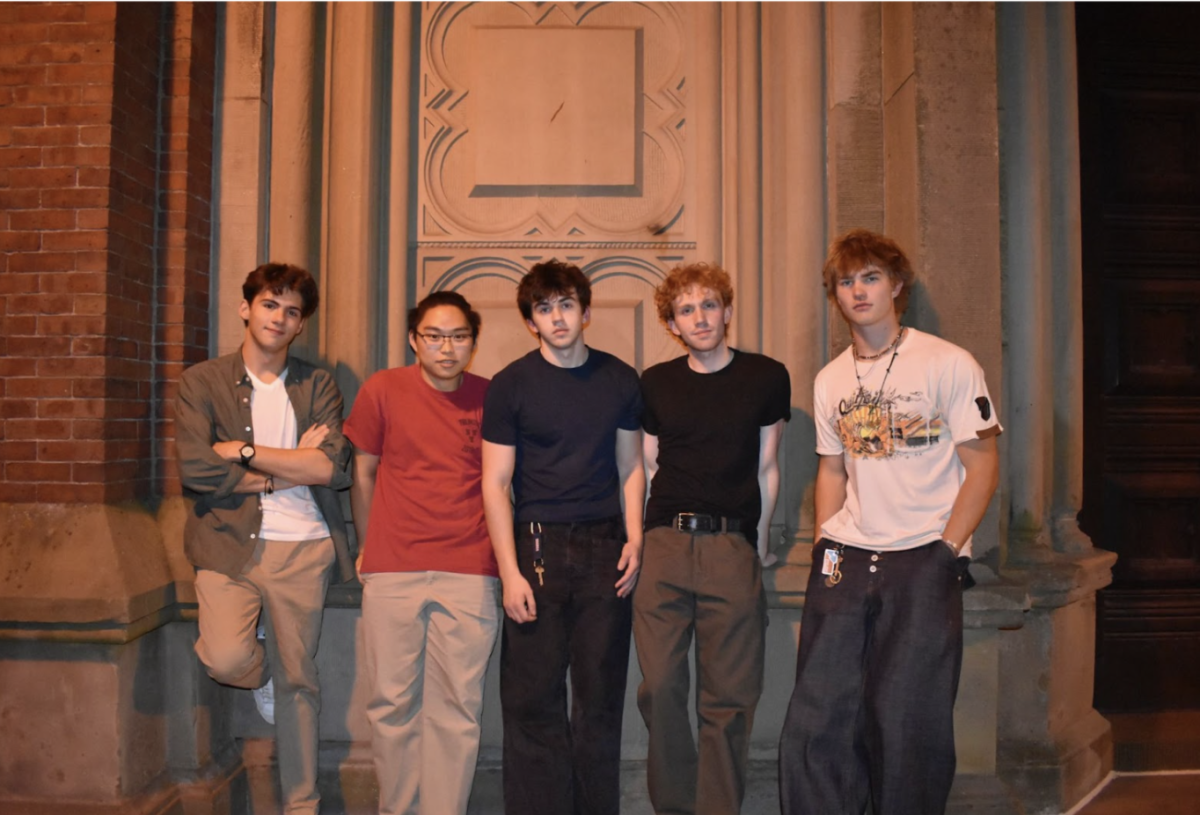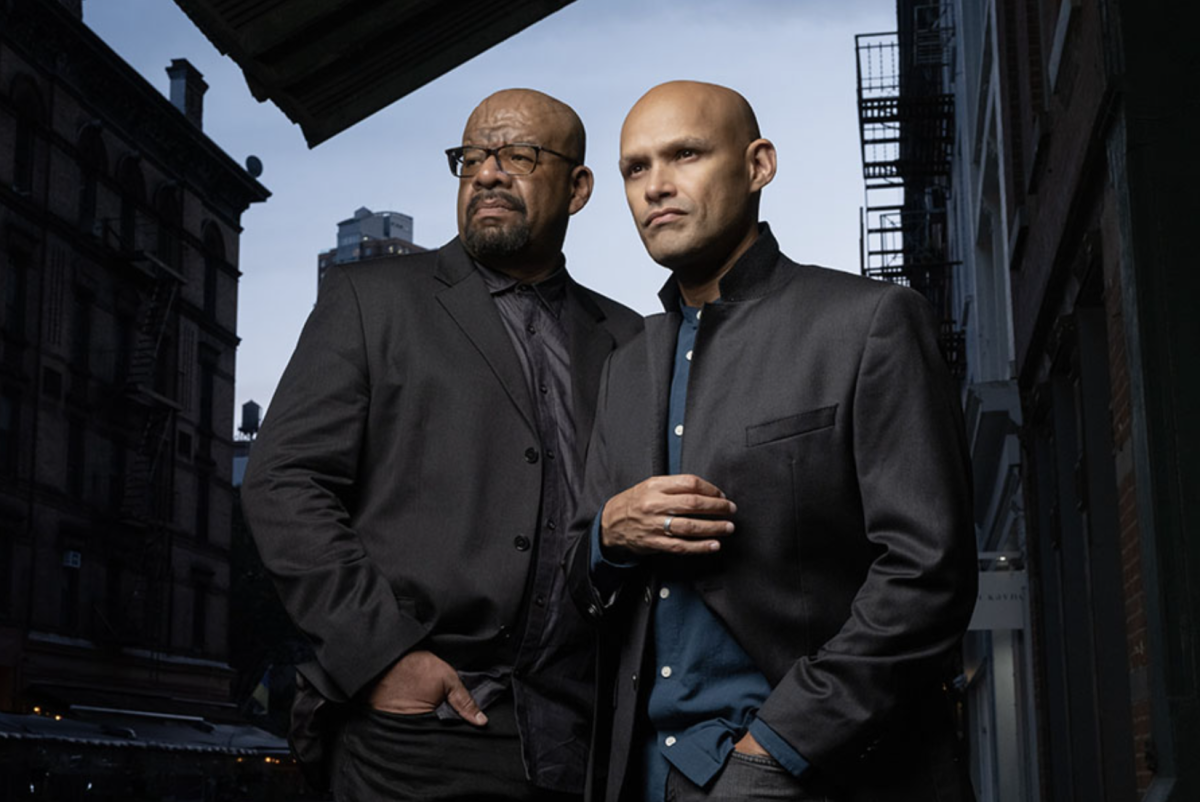Warning: spoilers and mentions of domestic violence
On Oct. 1, 2021, the 10-episode drama miniseries “Maid” debuted on Netflix. “Maid” is inspired by Stephanie Land’s memoir “Maid: Hard Work, Low Pay, and a Mother’s Will to Survive,” and while the show is fictional, it illuminates the rising presence of poverty and domestic violence in the United States.
In the opening scene, Alex lays awake in bed, waiting for the perfect moment to quietly slip off the covers, grab her daughter and flee in her car with only $18. We don’t know her reasoning for leaving yet, but this sequence sets up the central conflict of the show: escaping abuse.
Fast paced and shot against a sylvan backdrop, “Maid” follows Alex (Margaret Qualley), a young mother in an abusive relationship with her boyfriend Sean (Nick Robinson). Though she planned to study creative writing at Montana College of Fine Arts, she now shares a two year old daughter named Maddy (Rylea Nevaeh Whittet) with Sean, who struggles with alcoholism.
“Maid” is a show about many things — motherhood, mermaid dolls from the Dollar Store, dirty bathrooms, domestic violence and substance abuse — but it’s mainly about how devastating poverty is. The audience experiences the limitations of subsidized housing and childcare and government programs such as SNAP (the Supplemental Nutrition Assistance Program). Alex returns groceries that aren’t covered by her small food allowance, and she needs additional scholarships to afford Maddy’s daycare on her minimum wage salary as a maid.
Money is also tracked on screen, documenting Alex’s earnings and expenses, which gives the audience a glimpse at the mental math she does before paying for things. When she fills out endless stacks of paperwork to apply for full custody of her daughter, we see the imaginary titles she gives them, such as, “You are an unfit mother. You will lose this case.” These moments, combined with shots of her sinking into the couch or sleeping on the floor of the ferry station, imbue the show with an immersive quality. The direct way the show confronts poverty, emotional and physical abuse and single motherhood makes the audience’s response to it more powerful. You ultimately see the characters as stand-ins for real people, and you root for them to succeed and share their disappointment and anxiety when they’re overrun with problems.
Alex’s path to freedom and safety is neither easy nor direct. It takes 338 cleaned toilets, seven types of government assistance and nine housing changes for her to successfully leave her abusive relationship. Still, it’s important to note that as a heterosexual white woman, Alex is statistically less likely to experience domestic violence. The Office for Victims of Crime reports that Black, Indigenous and multiracial women experience higher rates of domestic violence. Additionally, queer women are statistically more likely to experience physical and sexual violence from their partners.
“Maid” is a portrait of the outcomes of domestic violence and poverty. It’s a snapshot of a mother trying to cope with changing circumstances, so focused on escaping and surviving, that it feels as though you’re watching her story unfold in real-time.






